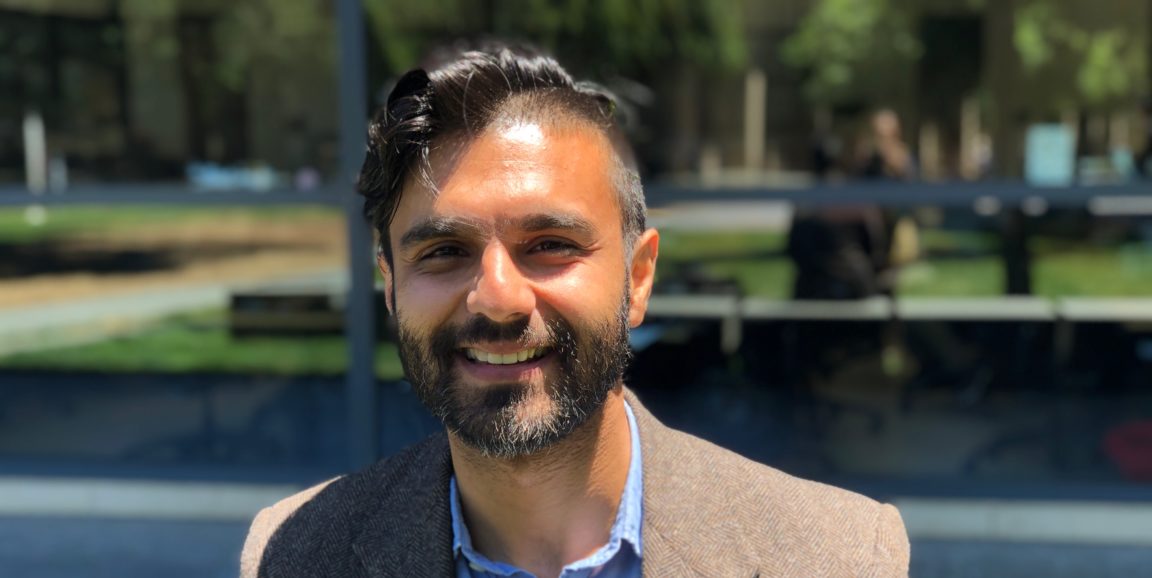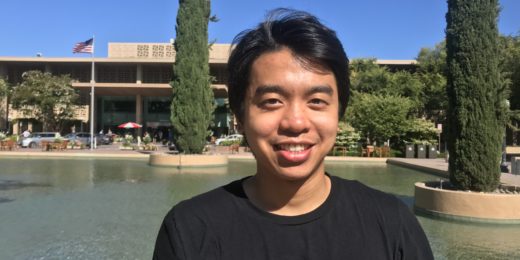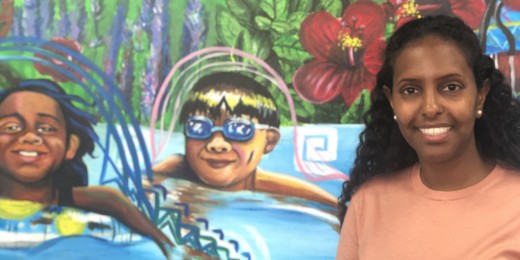Omar Sahak failed his first college biology class. The second time, he got a C. And by the end of college, he was pretty sure medicine was a failed dream. But thanks to a few people who believed in him, he eventually did get that MD -- along with a master's degree in public health -- and he's now a second-year resident in psychiatry at Stanford.
Sahak shared his story with me:
Where did you grow up?
I lived in Flushing, Queens until I was about 10 years old. My parents had escaped Afghanistan, and they had one friend in New York. Everybody was an immigrant in our neighborhood. My dad got a coffee truck and sold coffee and bagels on the street from 2 a.m. to 2 p.m. Then we moved to California -- Marin County -- and I totally stood out. That was uncomfortable.
When did you get interested in science and medicine?
When I was a kid, I loved memorizing things because I could do it really quickly. I remember being excited to read that the sun was 93 million miles from the earth.
By the end of high school, my intuition was to study film, but I wanted to do something that helped other people. I listened to my family and my parents, who told me I could study science and have a good career. My mom was a nurse and one of my aunts was a pharmacist, and they said medicine could be a good fit for me.
Ultimately, they were right, but when I tried to actually do pre-med at the University of California, Santa Cruz, I didn't know how to study or ask for help. I was trudging through the mud in my science classes, getting an F and then taking it again and getting a C. My guidance counselor told me, "You're never going to get into medical school." He saw me as a failure.
By the time I was a senior, I was getting B's and A's in my science classes, but I didn't have the GPA to apply to medical school.
So how did you get in?
After graduation, I was doing community organizing work for a nonprofit in Sacramento, and doing really well. My boss, who was always looking out for me, gave me a flyer for a master's of public health distance-learning program at San Jose State University. The director looked at my college transcript and said, "It looks like when you wanted to do well, you did well." I thought, here was this man really seeing me.
I never worked that hard in my life. I was working full-time and writing these papers I didn't feel qualified to write. I would spend hours and hours writing one page, but after each paper, I kept getting better. It was very validating. I got straight A's. I left that program with a totally different brain and attitude. I felt like I could do anything I want -- I just had to figure out what I want to do.
So then I thought about medicine again. I knew in my bones I could be a really good doctor.
I had done a ton of volunteer work and public health policy work, but I had to prove myself academically. I enrolled in an organic chemistry class -- which I had failed many times -- and for the first time, it made sense. I took one class after another and was getting A's and finally finding mentors.
I was accepted at University of California, Davis, where my mom was a nurse. The year I graduated was the year she retired. It was kind of like passing a baton.
Why did you choose your specialty, psychiatry?
Psychiatry brought together a lot of interests I had. I naturally think about people's inner worlds and how their life experiences affect them. I could see myself being motivated over decades to go to work.
What do you do for fun?
What I really like is unstructured time. Once the weight of expectation comes off, other things start to come up -- like general musings about life and what I'm seeing around me. Medical school gave me so much to think about and worry about, so when I have unstructured time, I take it.
Where do you see yourself in the future?
I'd like to go to an urban, underserved area that's associated with an academic center, where I can live in that community and also serve as an advocate for it. I want kids coming home from school to be like, "Hey Doc," and come up to me and ask me for help.
Photo by Daphne Sashin






